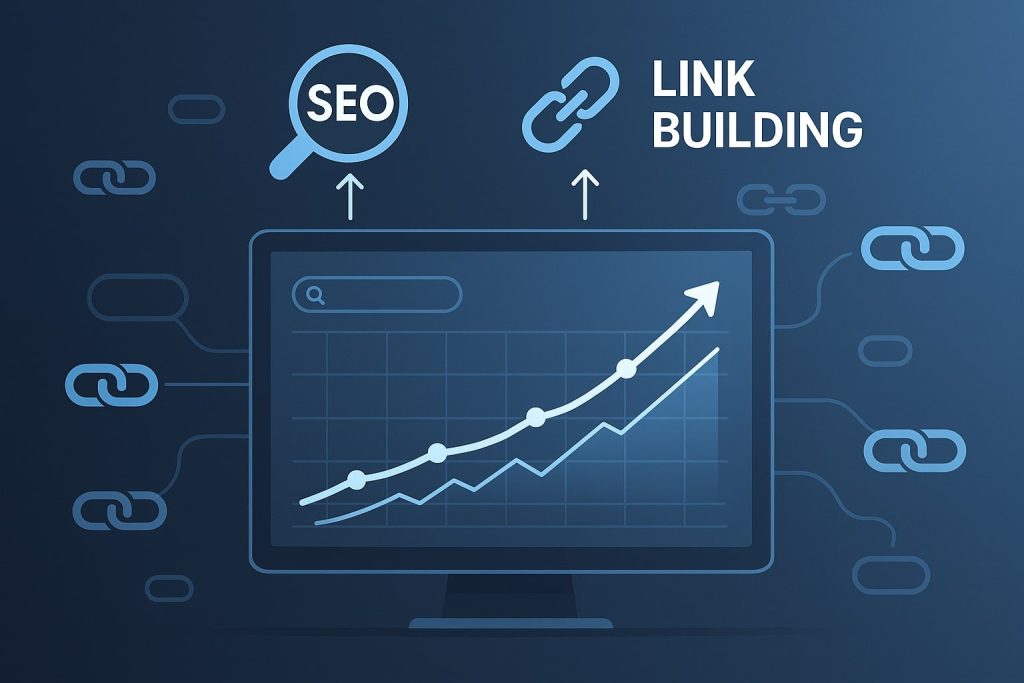
In the world of SEO, link building remains one of the most essential strategies for improving search engine rankings and driving organic traffic to your website. But what exactly is link building, and why does it matter so much for your site’s success? In this article, we’ll explore the importance of link building, how it works, and why it should be an integral part of your SEO strategy.
What is Link Building?
Link building is the process of acquiring hyperlinks from other websites to your own. A link, also known as a backlink, acts as a vote of confidence from other sites, signaling to search engines that your content is valuable and trustworthy. There are several ways to acquire these links, ranging from guest blogging and content creation to outreach and directory submissions.
Why is Link Building Important for SEO?
Search engines like Google use links as one of their key ranking factors. The more high-quality, relevant backlinks a website has, the more likely it is to rank higher on search engine results pages (SERPs). Here’s why link building is so crucial for SEO:
- Improves Search Engine Rankings: Search engines see backlinks as votes of trust. When reputable websites link to your content, it signals to search engines that your site is also trustworthy. This leads to higher rankings for the content and your website in general.
- Boosts Website Traffic: Backlinks not only improve your rankings but also serve as pathways for users to discover your site. When an authoritative website links to your content, you gain exposure to a broader audience, resulting in increased referral traffic.
- Builds Credibility and Trust: Quality backlinks help establish your website as a trusted source of information. Search engines reward sites with high-quality backlinks by ranking them higher, while users are more likely to trust content that has been recommended by other authoritative sources.
- Increases Brand Visibility: Link building is also an excellent way to increase your brand’s visibility. The more backlinks you have, the more opportunities you have to be seen by potential customers, which increases the overall exposure of your business.
Types of Link Building
There are several effective strategies for building links, and it’s important to diversify your approach. Here are some common types of link building:
- Editorial Links: These are natural backlinks that come from content creators, news sites, or blogs. When someone mentions your website as a reference, it’s an editorial link.
- Guest Blogging: Writing guest posts for reputable blogs in your industry is a great way to secure backlinks. In exchange for high-quality content, you get a link back to your website.
- Broken Link Building: This technique involves finding broken links on other websites and suggesting your content as a replacement. It’s a win-win for both you and the site owner.
- Directory Listings: Submitting your website to reputable online directories can also help with link building. Just make sure the directories are relevant and high-quality.
Best Practices for Link Building
To make the most of your link-building efforts, it’s crucial to follow best practices that align with search engine guidelines. Here are some essential tips:
- Focus on Quality, Not Quantity: It’s more important to acquire a few high-quality, relevant backlinks than to collect numerous low-quality ones. One high-authority backlink can be far more valuable than dozens of links from irrelevant or spammy sites.
- Ensure Relevance: Only seek backlinks from websites related to your industry or niche. Links from irrelevant sources can harm your rankings rather than help them.
- Avoid Black-Hat Techniques: Stay away from practices like buying backlinks or using automated link-building tools. These tactics can lead to penalties from search engines.
- Diversify Your Link Profile: It’s crucial to have a variety of links from different sources, including blog posts, articles, social media, and directories. This looks more natural to search engines and helps build a stronger online presence.
How to Start Link Building
Getting started with link building requires a strategy. Here are some steps to begin:
- Create High-Quality Content: Valuable, informative, and shareable content naturally attracts backlinks.
- Conduct Outreach: Reach out to bloggers, influencers, and industry experts to secure backlinks.
- Use Link-Building Tools: Tools like Ahrefs, Moz, and SEMrush can help you find potential backlink opportunities.
Measuring the Success of Link Building
To evaluate the effectiveness of your link-building efforts, monitor key metrics such as:
- Domain Authority (DA): A score that predicts how well a website will rank on search engines. The higher the DA, the more authoritative your site is considered by search engines.
- Referral Traffic: Track the amount of traffic coming to your website from backlinks. This can help you measure the success of your link-building efforts.
Conclusion
Link building is a fundamental aspect of SEO that directly impacts your website’s search engine rankings, visibility, and authority. By acquiring high-quality backlinks, you can boost your site’s performance, attract more traffic, and establish your brand as a credible and trustworthy source in your industry. Remember, effective link building requires patience, consistency, and following best practices to avoid penalties. So, start building your links today and watch your SEO rankings soar!